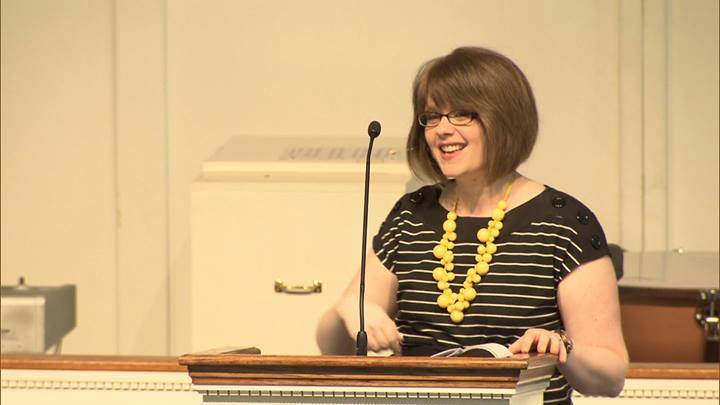By Jeff Brumley
Millennials and other young people get a lot of credit — or blame, depending on the observer — for the dramatic changes occurring in the modern church. Experiments with everything from mission to worship styles are attempted in order to lure them into sanctuaries, or to keep them from leaving.
But a growing pressure to shorten sermon lengths, many ministers say, cannot be attributed to younger generations raised on video games, cell phones and iPads.
Instead, there is plenty of evidence that Millennials are flocking to those wildly popular and theologically conservative megachurches where sermons are getting longer, not shorter, several Baptist pastors told Baptist News Global.
“You look at the fastest growing churches and their sermons are 40 minutes long and their sanctuaries are full of young people,” said Joe LaGuardia, senior pastor at Trinity Baptist Church in Conyers, Ga.

Look to the older, traditional worshipers for the source of pressure in mainline and progressive churches to nip and tuck sermon lengths.
“I meet more senior citizens who don’t go to church because the contemporary music is too loud or the sermons are too long,” LaGuardia said.
The Cooperative Baptist preacher has given a lot of thought and reading time to the subject of sermon lengths and recently wrote “Ending a Sermon on Time” for the blog Baptist Spirituality. It was also published as a BNG Perspectives piece.
His research has taken him through a series of books on preaching ranging from the late 1800s to the mid-20th century and beyond. He said he’s found that mainline and progressive sermons have tended toward shorter times more often than conservative, holiness and Pentecostal ones.
“I didn’t see anything specific in my readings about the time,” he told BNG, but reading the sermons delivered by progressives in the 1920s “you can guess 20 to 30 minutes long.”
LaGuardia said he aims to keep his sermons in the 15- to 20-minute range, and in his blog said getting to the point is a way he shows respect to his congregation.
“I let them know I can’t hit a home run every Sunday, but at least I will get them out of church on time,” he wrote. “I may not always inspire, but I will respect them.”
The shorter, the better
He and other Baptist pastors say there is a growing sense that shorter is better in the pulpit on Sunday mornings — and it isn’t because of youngsters fidgeting in their seats.
“The people I hear making the jokes [about lengthy sermons] are coming from people in their 40s, 50s, 60s and 70s,” said Stacy Nowell, senior pastor at First Baptist Church in Huntersville, N.C.
Nowell said she’s sensed a definite pressure in traditional Baptist and mainline churches for pastors to keep their sermons short and to the point. “In every church I’ve served, they are looking for shorter.”
But she also doesn’t have a problem with that.

“My sermons are better when they are tighter,” she said. “If I can get a sermon down to 20 to 22 [minutes], generally they are more effective.”
Sometimes it’s halfway through her preaching that Nowell will realize she’s been drifting. Sometimes she’s making too many points or using too many illustrations.
“And in the middle of the sermon I will realize I need to make this leaner, and get out,” she said.
The pressure isn’t resulting from churches trying to prevent Millennials and other young people from leaving organized Christianity.
Look at Andy Stanley at North Point Community Church in Atlanta, she said. The megachurch is packed to capacity every Sunday while Stanley hits 40 minutes and beyond with his sermons.
“And Stanley is attracting a younger demographic,” she said.
Blame the microwave
Besides it’s never really safe to pin anything on a generation, said Brandon Hudson, pastor at Crosscreek Baptist Church in Pelham, Ala.
Today’s younger generations have a wide variety of religious interests, from liberal to conservative — and long sermons and short.
“I don’t think there is a normative Millennial,” Hudson said. “It just depends on what they are accustomed to.”
The feeling of urgency to shorten sermons more likely comes from the overall shortening of the American attention span, he said. It can be traced over the past three decades or so when Americans came to expect everything from food to worship to be delivered to them faster and faster.
 “It’s not so much Millennial as it is universal,” Hudson said. “You could point to the rise of the microwave if you want to.”
“It’s not so much Millennial as it is universal,” Hudson said. “You could point to the rise of the microwave if you want to.”
As a result, Hudson said he, too, shoots for sermons of about 20 minutes. But he knows there are plenty of preachers out there who go longer — and their churches, including young people, want it that way.
“People who are expository preachers, going verse by verse, go longer,” said Hudson.
Theological, not generational
The observation about expository preaching hints at another likely factor that influences sermon lengths, LaGuardia said: theology.
In many progressive and mainline churches where the sermon is part of, but not central to, worship, sermons come down significantly in length.

In theologically conservative, traditional Protestant churches, including many Baptist congregations, the preaching of the Word is considered of central importance in worship.
“So if the word of God comes only through the pastor, then it takes an hour” to deliver a sermon, LaGuardia said.
He has noticed a generational shift in those congregations where he lives and works in Georgia.
They “are losing older givers because they can’t sit through longer” sermons and services, LaGuardia said.
